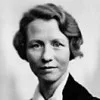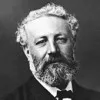Better be alone, than in bad Company.
Thomas Fuller (1654-1734) English physician, preacher, aphorist, writer
Introductio ad Prudentiam, Vol. 1, # 81 (1725)
(Source)
Quotations about:
alone
Note not all quotations have been tagged, so Search may find additional quotes on this topic.
Thus in the winter stands the lonely tree,
Nor knows what birds have vanished one by one,
Yet knows its boughs more silent than before:
I cannot say what loves have come and gone,
I only know that summer sang in me
A little while, that in me sings no more.Edna St. Vincent Millay (1892-1950) American poet
Sonnet 43 “What lips my lips have kissed, and where, and why,” ll. 9ff. (1920), The Harp-Weaver and Other Poems (1923)
(Source)
Originally published in Vanity Fair (1920-11).
It is astonishing how articulate one can become when alone and raving at a radio. Arguments and counter arguments, rhetoric and bombast flow from one’s lips like scurf from the hair of a bank manager.
Stephen Fry (b. 1957) British actor, writer, comedian
“Trefusis on Any Questions,” Loose Ends, BBC Radio 4 (c. 1987)
(Source)
Reprinted in Paperweight (1992)
What is the opposite of two?
A lonely me, a lonely you.Richard Wilbur (1921-2017) American poet, literary translator
“Some Opposites,” Opposites (1973)
(Source)
Pure Valour, if there were any such thing, would consist in the doing of that without witnesses, which it were able to do, if all the world were to be spectators thereof.
[La pure valeur (s’il y en avait) serait de faire sans témoins ce qu’on est capable de faire devant le monde.]
François VI, duc de La Rochefoucauld (1613-1680) French epigrammatist, memoirist, noble
Réflexions ou sentences et maximes morales [Reflections; or Sentences and Moral Maxims], ¶216 (1665-1678) [tr. Davies (1669), ¶97]
(Source)
(Source (French, 1665 ed., ¶229)). In the final edition (1678, ¶216), the original French had been modified to:La parfaite valeur est de faire sans témoins ce qu’on seroit capable de faire devant tout le monde.
Alternate translations:True Valour would do all that, when alone, that it could do, if all the World were by.
[tr. Stanhope (1694), ¶217]Perfect valour consists in doing without witnesses all we should be capable of doing before the whole world.
[pub. Donaldson (1783), ¶431]Perfect valour consists in doing, without witness, all that we should be capable of doing before the whole world.
[ed. Carville (1835), ¶367]Perfect valor is to do unwitnessed what we should be capable of doing before all the world.
[ed. Gowens (1851), ¶225]Perfect valour is to do without witnesses what one would do before all the world.
[tr. Bund/Friswell (1871)]Perfect valor accomplishes without witnesses what anyone could do before the eyes of the world.
[tr. Heard (1917), ¶221]Perfect courage consists in doing unobserved what what we could do in the eyes of the world.
[tr. Stevens (1939)]Perfect valour is to behave, without witnesses, as one would act were all the world watching.
[tr. FitzGibbon (1957)]Perfect courage means doing unwitnessed what we would be capable of with the world looking on.
[tr. Kronenberger (1959)]Perfect valour consists in doing without witnesses what one would be capable of doing before the world at large.
[tr Tancock (1959)]Perfect courage is to do without witnesses what one would do before all the world.
[tr. Whichello (2016)]Perfect courage is to do without witnesses what one would be capable of doing with the world looking on.
[Source]
A voyage without companionship, that is to say without conversation, is one of the saddest pleasures of life.
Germaine de Staël (1766-1817) Swiss-French writer, woman of letters, critic, salonist [Anne Louise Germaine de Staël-Holstein, Madame de Staël, Madame Necker]
Quoted in Margaret Goldsmith, Madame de Staël (1938)
See also here.
No doubt about it, solitude is improved by being voluntary.
Barbara Holland (1933-2010) American author
One’s Company: Reflections on Living Alone (1996)
(Source)
there are worse things than
being alone
but it often takes decades
to realize this
and most often
when you do
it’s too late
and there’s nothing worse
than
too late.Charles Bukowski (1920-1994) German-American author, poet
“Oh Yes,” You Get So Alone At Times That It Just Makes Sense (1986)
(Source)
Real loneliness is not necessarily limited to when you are alone.
Charles Bukowski (1920-1994) German-American author, poet
sifting through the madness for the Word, the line, the way, Part 2, epigram (2003)
(Source)
The book was reprinted as New Poems, Book Two (2011).
Loneliness is the poverty of self; solitude is the richness of self.
In the arithmetic of love, one plus one equals everything, and two minus one equals nothing.
Mignon McLaughlin (1913-1983) American journalist and author
The Second Neurotic’s Notebook, ch. 4 (1966)
(Source)
If a man should ascend alone into heaven and behold clearly the structure of the universe and the beauty of the stars, there would be no pleasure for him in the awe-inspiring sight, which would have filled him with delight if he had had someone to whom he could describe what he had seen.
[Si quis in coelum ascendisset, naturamque mundi, et pulchritudinem siderum perspexisset, insuavem illam admirationem ei fore; quae jucudissima fuisset, si aliquem, cui narraret, habuisset.]
Marcus Tullius Cicero (106-43 BC) Roman orator, statesman, philosopher
Laelius De Amicitia [Laelius on Friendship], ch. 23 / sec. 88 (44 BC) [tr. Falconer (1923)]
(Source)
Original Latin. Cicero attributes this as a paraphrase of Archytas of Tarentum (d. 394 BC), a Pythagorean philosopher and astronomer. Alternate translations:If any one could have ascended to the sky, and surveyed the structure of the universe, and the beauty of the stars, that such admiration would be insipid to him; and yet it would be most delightful if he had someone to whom he might describe it.
[tr. Edmonds (1871)]If one had ascended to heaven, and had obtained a full view of the nature of the universe and the beauty of the stars, yet his admiration would be without delight, if there were no one to whom he could tell what he had seen.
[tr. Peabody (1887)]If a man could ascend to heaven and get a clear view of the natural order of the universe, and the beauty of the heavenly bodies, that wonderful spectacle would give him small pleasure, though nothing could be conceived more delightful if he had but had some one to whom to tell what he had seen.
[tr. Shuckburgh (1909)]If a man could mount to heaven and survey the mighty universe with all the planetary orbs, his admiration of its beauties would be much diminished, unless he had someone to share in his pleasure.
[Source]
It’s a terrible thing to be alone — yes it is — it is — but don’t lower your mask until you have another mask prepared beneath — As terrible as you like — but a mask.
Katherine Mansfield (1888-1923) New Zealander writer, poet [pen name of Kathleen Mansfield Murry (née Beauchamp)]
Letter to John Middleton Murry (Jul 1917)
(Source)
ANN ANDERSON: Here’s something else you must remember: husbands like to be alone once in awhile.
JENNIE ANDERSON: Why?
ANN ANDERSON: You never know why, but I can always tell when James wants to be alone. A mood comes over him. I can always see it in his eyes before it gets there. I don’t know where the mood comes from or why, but that’s when I leave him alone. It seems sometimes things get so fickle in a man that he comes to feel that everything is closing in on him — and that’s when he wants to be left alone. You understand, don’t you?
JENNIE ANDERSON: No!
We’re born alone, we live alone, we die alone. Only through our love and friendship can we create the illusion for the moment that we’re not alone.
In relation to his public, the artist of to-day […] walks at first with his companions, till one day he falls through a hole in the brambles, and from that moment is following the dark rapids of an underground river which may sometimes flow so near the surface that the laughing picnic parties are heard above, only to re-immerse itself in the solitude of the limestone and carry him along its winding tunnel, until it gushes out through the misty creeper-hung cave which he has always believed to exist, and sets him back in the sun.
Cyril Connolly (1903-1974) English intellectual, literary critic and writer.
“Writers and Society, 1940-3” (1943), The Condemned Playground (1946)
(Source)
Solitude is not lack.
Laurie Helgoe (b. 1960) American psychologist and author
Introvert Power, ch. 2 (2008)
(Source)
Sometimes misquoted "Solitude is not a lack."
Who could deny that privacy is a jewel? I has always been the mark of privilege, the distinguishing feature of a truly urbane culture. Out of the cave, the tribal teepee, the pueblo, the community fortress, man emerged to build himself a house of his own with a shelter in it for himself and his diversions. Every age has seen it so. The poor might have to huddle together in cities for need’s sake, and the frontiersman cling to his neighbors for the sake of protection. But in each civilization, as it advanced, those who could afford it chose the luxury of a withdrawing-place.
Phyllis McGinley (1905-1978) American author, poet
“A Lost Privilege,” The Province of the Heart (1959)
(Source)
… so I wait for you like a lonely house
till you will see me again and live in me.
Till then my windows ache.[… y así te espero como casa sola
y volverás a verme y habitarme.
De otro modo me duelen las ventanas.]Pablo Neruda (1904-1973) Chilean poet, diplomat, politician [b. Ricardo Eliécer Neftalí Reyes Basoalto]
Sonnet 65
(Source)
Sometimes it takes darkness and the sweet
confinement of your aloneness
to learnanything or anyone
that does not bring you aliveis too small for you.
Where you used to be, there is a hole in the world, which I find myself constantly walking around in the day-time, and falling into at night.
Edna St. Vincent Millay (1892-1950) American poet
Letter to Whitter “Hal” Bynner and Arthur Davidson Ficke (1920)
(Source)
The cots, the palaces and valleys here,
Are nought to me, their charm, alas! is fled;
Floods, rocks, and forests, solitudes so dear
One soul is wanting, and all else seems dead[Que me font ces vallons, ces palais, ces chaumières,
Vains objets dont pour moi le charme est envolé?
Fleuves, rochers, forêts solitudes si chères,
Un seul être vous manque et tout est dépeuplé!]Alphonse de Lamartine (1790-1869) French poet and statesman
“Solitude [L’isolement],”Poetic Meditations [Méditations Poétiques] (1820) [tr. J. Churchill]
(Source)
Alt. trans. ["Isolation"]:
"What for me do these valleys, these palaces, these cottages,
Vain objects of which for me the charm has fled?
Streams, rocks, forests, solitudes so dear,
One single being from you is missing, and everything is depopulated."
Alt. trans.:
"Sometimes, when one person is missing, the whole world seems depopulated."
To ensure moral salvation, it is primarily necessary to depend on oneself, because in the moment of peril we are alone. And strength is not to be acquired instantaneously. He who knows that he will have to fight, prepares himself for boxing and dueling by strength and skill; he does not sit still with folded hands.
The world today does not understand, in either man or woman, the need to be alone. How inexplicable it seems. Anything else will be accepted as a better excuse. If one sets aside time for a business appointment, a trip to the hairdresser, a social engagement or a shopping expedition, that time is accepted as inviolable. But if one says: I cannot come because that is my hour to be alone, one is considered rude, egotistical or strange. What a commentary on our civilization, when being alone is considered suspect; when one has to apologize for it, make excuses, hide the fact that one practices it — like a secret vice!
Be able to be alone. Loose not the advantage of Solitude, and the Society of thy self, nor be only content, but delight to be alone and single with Omnipresency.
Thomas Browne (1605-1682) English physician and author
Christian Morals, Part 3, sec. 9 (1716)
(Source)
I love people. I love my family, my children … but inside myself is a place where I live all alone and that’s where you renew your springs that never dry up.
A talent forms itself in solitude,
A character amid the stream of life.[Es bildet ein Talent sich in der Stille,
Sich ein Charakter in dem Strom der Welt.]Johann Wolfgang von Goethe (1749-1832) German poet, statesman, scientist
Torquato Tasso, Act 1, sc. 2, ll. 304-305 [Leonora] (1790) [tr. Ryder (1993)]
(Source)
(Source (German)). Alternate translations:
- "A talent doth in stillness form itself -- / A character on life's unquiet stream." [tr. Des Voeux (1827)]
- "Talents are nurtured best in solitude, -- / A character on life's tempestuous sea." [tr. Swanwick (1843)]
- "Man's talent ripens in tranquility, / His character in battling with the world." [tr. Cartwright (1861)]
- "A talent in tranquility is formed, / A character in the turbulence of affairs." [tr. Hamburger (20th C)]
- "Talent develops in quiet places, / Character in the full current of human life."
- Talents are best nurtured in solitude; / Character is best formed in the stormy billows of the world.
- "Genius is formed in quiet, / Character in the stream of human life."
No one can be happy in eternal solitude.
Anne Brontë (1820-1849) British novelist, poet [pseud. Acton Bell]
The Tenant of Wildfell Hall, ch. 7 “The Excursion” [Helen] (1848)
(Source)
It is a great misfortune to be alone, my friends; and it must be believed that solitude can quickly destroy reason.
[Malheur à qui est seul, mes amis, et il faut croire que l’isolement a vite fait de détruire la raison.]
Jules Verne (1828-1905) French novelist, poet, playwright
The Mysterious Island, Part 2, ch. 15 (1874) [tr. White (1876)]
(Source)
I’m rarely bored alone; I am often bored in groups and crowds.
Laurie Helgoe (b. 1960) American psychologist and author
Introvert Power, ch. 1 (2008)
(Source)
Usually attributed to Helgoe, but cited in the book to "Don, Minnesota."
Those who retire from the world on akount ov its sin and peskyness must not forgit that they hav got tew keep kompany with a person who wants just as much watching as ennyboddy else.
[Those who retire from the world on account of its sin and peskiness must not forget that they have got to keep company with a person who wants just as much watching as anybody else.]
Endeavor to make thy own Company pleasant to thee.
Thomas Fuller (1654-1734) English physician, preacher, aphorist, writer
Introductio ad Prudentiam, Vol. 1, # 99 (1725)
(Source)
Our language has wisely sensed these two sides of man’s being alone. It has created the word “loneliness” to express the pain of being alone. And it has created the word “solitude” to express the glory of being alone.
Paul Tillich (1886-1965) American theologian and philosopher
The Eternal Now, “Loneliness and Solitude” (1963)
(Source)
Whenever you are to do a thing tho’ it can never be known but to yourself, ask yourself how you would act were all the world looking at you, and act accordingly.
Thomas Jefferson (1743-1826) American political philosopher, polymath, statesman, US President (1801-09)
Letter (1785-08-19) to Peter Carr
(Source)
All menʼs misfortunes proceed from their aversion to being alone; hence gambling, extravagance, dissipation, wine, women, ignorance, slander, envy, and forgetfulness of what we owe to God and ourselves.
[Tout notre mal vient de ne pouvoir être seuls: de là le jeu, le luxe, la dissipation, le vin, les femmes, l’ignorance, la médisance, l’envie, l’oubli de soi-même et de Dieu.]
Jean de La Bruyère (1645-1696) French essayist, moralist
The Characters [Les Caractères], ch. 11 “Of Mankind [De l’Homme],” § 99 (11.99) (1688) [tr. Van Laun (1885)]
(Source)
(Source (French)). Alternate translations:All men's misfortunes proceed from their inability to be alone, from Gaming, Riot, Extravagance, Wine, Women, Ignorance, Railing, Envy, and forgetting their duty towards God and themselves.
[Bullord ed. (1696)]All our Misfortunes proceed from an Inability to be alone; from thence come Gaming, Riot, Extravagance, Wine, Women, Ignorance, Railing, Envy, and forgetting God and our selves.
[Curll ed. (1713)]All Mens Misfortunes proceed from their Aversion to being alone; hence Gaming, Riot, Extravagance, Wine, Women, Ignorance, Railing, Envy and Forgetfulness of God and themselves.
[Browne ed. (1752)]All our misfortunes proceed from our inability to be alone; hence gaming, dissipation, wine, women, ignorance, slander, envy, neglect of God and ourselves.
[tr. Lee (1903)]All our troubles spring from our inability to endure solitude: hence come gaming, luxury, dissipation, drink, licentiousness, scandal-mongering, envy, the neglect of oneself and of God.
[tr. Stewart (1970)]
If you are lonely when you’re alone, you are in bad company.
[Si vous êtes seul quand vous êtes seul, vous êtes en mauvaise compagnie.]
Jean-Paul Sartre (1905-1980) French philosopher and writer
(Attributed)
Widely attributed, in both languages, to Satre (especially by self-help books), but I am unable to find any actual citation of its source. Given that Sartre wrote a lot about loneliness, it is possibly a paraphrase of of something else he said.
When I have occasionally set myself to consider the different distractions of men, the pains and perils to which they expose themselves at court or in war, whence arise so many quarrels, passions, bold and often bad ventures, etc., I have discovered that all the unhappiness of men arises from one single fact, that they cannot stay quietly in their own chamber.
Blaise Pascal (1623-1662) French scientist and philosopher
Pensées #139 “Diversion” (1670)
(Source)
Alt. trans.: "I have often said that man's unhappiness springs from one thing alone, his incapacity to stay quietly in one room."
Alt. trans.: "All the trouble in the world is due to the fact that a man cannot sit still in a room."














































